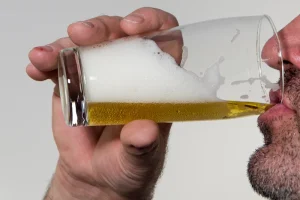
Carbohydrate-deficient transferrin (CDT) and gammaglutamyl transferase (GGT) are sensitive markers for alcohol overuse; systematic literature reviews have been inconclusive as to which marker is better (۵۳; ۵۹). No biomarker can be recommended for screening of unselected seizure populations (۰۶; ۰۸). (۴) Chronic ethanol intake increases the number of L-type calcium channels in different brain regions.
Support for AUD
Our addiction specialists can help you or your loved one begin a life of sobriety and wellness. Reach out to us to learn more about on-site detox, residential, outpatient, and hybrid programs that provide alcohol recovery services. Occasionally, seizures are observed after short binges or even single drinking episodes. In such cases, underlying seizure susceptibility is often present, ie, cortical brain damage from trauma, tumors, or epilepsy, and it may be concluded that the alcohol withdrawal state lowered seizure threshold. • Alcohol withdrawal seizures occur ۶ to ۴۸ hours after alcohol cessation. If you seek treatment for an alcohol use disorder, you will likely begin with a medical assessment.
Why it Is Important to go to Medical Detox for Alcohol Withdrawal?
- If you’ve been drinking heavily for a time and then quit cold turkey, you may experience some of the most dangerous withdrawal symptoms of any substance.
- Symptoms start around ۶ h after cessation or decrease in intake and last up to ۴–۴۸ h (early withdrawal),۶, ۱۰ Hallucinations of visual, tactile or auditory qualities, and illusions while conscious are symptoms of moderate withdrawal.
- In contrast, intravenous phenytoin was not effective in preventing a second ethanol withdrawal seizure.
- Increasing interest is expressed in the potential of gabapentin as a treatment for alcohol withdrawal (۷۴–۷۸) and of topiramate in alcohol dependence (۷۹).
- Studies have found that people who experience seizures triggered by binge drinking can, in the future, start experiencing unprovoked seizures even in the absence of alcohol intake.
In this rapid review, we adapted traditional systematic review methods to generate evidence within an accelerated time frame [۲۱,۲۲,۲۳]. Rapid reviews are a pragmatic and resource-efficient approach to knowledge synthesis that remains scientific, transparent and reproducible [۲۴]. Additionally, if a seizure cannot be stopped or multiple seizures occur in rapid succession, it could result in permanent injury or prove fatal. According to the Epilepsy Foundation, seizures by themselves typically are not fatal.
Alcohol and risk of SUDEP in a person with epilepsy

Supervision by our highly experienced healthcare team during alcohol detox can lower the risk of https://ecosoberhouse.com/s and keep you safe and comfortable as you start your journey to lasting sobriety. Benzodiazepines are the most evidence-based treatment for alcohol withdrawal treatment in the ED, especially for the prevention of alcohol withdrawal seizure recurrence. However, no clear evidence supports the use of one type of benzodiazepine over others. It is unclear if symptom-triggered protocols are effective for use in EDs, especially in those without attached observational units that can support longer stays. Phenytoin does not have evidence of effectiveness at preventing alcohol withdrawal seizures in the ED.

It is estimated that ۲ million Americans experience the symptoms of alcohol withdrawal each year (۱). Generalized tonic–clonic seizures (rum fits) are the most dramatic and dangerous component of the alcohol withdrawal syndrome. The brain substrates that trigger these seizures are largely in the brainstem and, therefore, are distinct from those believed to be responsible for other clinically important seizure types. Moreover, because alcohol withdrawal seizures are pharmacologically induced, the pathophysiologic mechanisms almost certainly are different from those of the seizures that occur in genetic and acquired epilepsies. This review provides an overview of the current understanding of the cellular and molecular events that lead to alcohol withdrawal seizures.

Benzodiazepines
We searched MEDLINE and CENTRAL using concepts emergency department AND alcohol withdrawal AND (drugs OR drug subheadings). We searched EMBASE using concepts emergency department AND alcohol withdrawal (focused) AND (drugs OR drug subheadings), as well as concepts emergency department AND alcohol withdrawal AND alcohol withdrawal seizure drugs AND drug subheadings. Subheadings and keywords were included in the searches to increase sensitivity. Seizures may occur in around ۵% of people with alcohol withdrawal syndrome. Alcohol-related seizures in those with epilepsy mostly occur due to alcohol withdrawal rather than the act of drinking itself.
Benzodiazepines are also central nervous system depressants that work in the brain the same way as alcohol. They can ease many alcohol withdrawal symptoms, allowing your body to adjust slowly. However, benzodiazepines can also be addictive, so they should be taken with a doctor’s guidance. Alcohol’s half-life is around four to five hours, which means your body will process the chemical out of your bloodstream within that time frame. After that, many of alcohol’s effects will have faded or will begin to fade.

How we reviewed this article:

Add a Comment